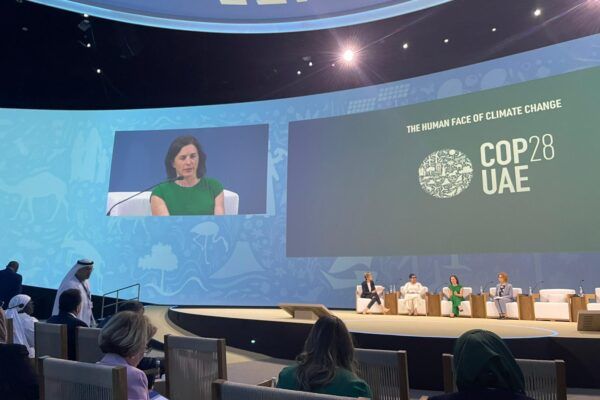Climate change and air pollution are interlinked
The definition of air pollution is the contamination of air by toxic or polluting particles and gases. The causes of climate change are often the same as the causes of air pollution: transport, the power sector, industrial emissions, agriculture, crop burning and residential heating.
The same pollutants that degrade air quality also exacerbate the climate crisis and damage the environment. These super pollutants or Short-Lived Climate Pollutants (SLCPs) include methane, black carbon (soot) and tropospheric ozone. They contribute to global warming, cause local environmental degradation, and harm ecosystems, biodiversity and human health. Tropospheric ozone and methane are also greenhouse gases, which trap heat in the earth’s atmosphere and cause global warming.
Why are black carbon and tropospheric ozone so important?
Read our briefs to find out why these climate super pollutants are so important for climate change and why we need to take action now:
As the causes of climate change and air pollution are often the same, it’s vital we tackle these challenges together. That means swapping fossil fuel-based power for renewables, greening public transport, cutting industrial emissions and reducing emissions from agriculture.
Climate warming causes extreme weather events to increase, which can also worsen air quality. Longer summers, increased wildfires and drought contribute to increased levels of tropospheric ozone (also known as ground-level ozone) and particulate matter pollution.
Action on clean air is climate action
As the causes of climate change and air pollution are often the same, it’s vital we tackle these challenges together. That means swapping fossil fuel-based power for renewables, greening public transport, cutting industrial emissions and reducing emissions from agriculture.
Climate super pollutants’ potential to warm the atmosphere is much greater than carbon dioxide (CO2), despite remaining in the atmosphere for much shorter periods of time. Reducing super pollutants is critical to realising fast climate mitigation and protecting public health.
The health impacts of air pollution are immense, immediate and urgent. Often, concern about dirty air proves to be catalyst for both people and politicians to act on the climate crisis. When we work towards clean air, we accelerate climate action
Martina Otto – UN Climate & Clean Air Coalition
There are signs of progress. Cleaning our air is one of the most immediate ways to protect the planet. The United Nations Environment Programme (UNEP) has suggested that climate policies that control air pollution emissions could reduce global warming by 0.5˚C and save the lives of 2.4 million people each year. Cutting super pollutants alongside decarbonisation could slow the rate of global warming by up to 0.5°C by 2050.
Joined-up action
Many governments and businesses are failing to tackle air pollution as part of their climate action plans and national determined contributions (NDCs). They are missing opportunities to improve health, deliver wider economic benefits, and support people and countries. According to the United Nations Framework Convention on Climate Change (UNFCCC), just 17 countries included black carbon in their national climate action plans in 2021.
Clean air measures can improve air quality, slow global climate warming, protect ecosystems and deliver a healthier planet for all. Governments are missing obvious wins by not prioritising air quality action alongside solutions to climate change. Read our recommendations on joined-up action.
Our work on climate and air pollution
We advocate for joined up action at all levels. At global climate forums, like the UN Climate Change Conference (COP) and the UN Environment Assembly, we advocate for bold policies and investment in clean air measures as part of climate plans. Our annual research on The State of Global Air Quality Funding explores how international public climate finance can be more smartly used to address climate change and air pollution together.
Our action on black carbon programme addresses the escalating need to reduce the super pollutant. We’re building a case for government action on black carbon in global climate and health forums by generating scientific research, building coalitions and advocating for national pledges. We want to see countries slash black carbon emissions by 35% below 2010 levels by 2030.
We also support businesses to integrate air quality into their climate targets and reporting standards for greenhouse gas emissions. The Alliance for Clean Air is the only global corporate initiative to tackle air pollution and accelerate climate action. Read about the Alliance for Clean Air.
Through our grants, we support organisations working on climate action to address air pollution. C40 Cities works with the world’s biggest cities to support action to meet air quality, climate and public health goals. Learn about C40’s Air Quality programme. The Global Climate and Health Alliance’s Clean Air NDC Scorecard reveals how countries integrate air quality considerations into their national climate plans to deliver the Paris Agreement.
Our work in key geographies supports public engagement on air pollution. We work with policy makers and businesses to set ambitious air quality targets and introduce measures. Find out about our national and regional work.

